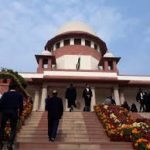The case originated from a Special Leave Petition filed by the State of U.P. and the Director General of Medical Education & Training against a High Court of Judicature at Allahabad order dated 19.01.2018. The High Court had disposed of a writ petition filed by two aspirants, Ms. Bhavna Tiwari and Ms. Sonal Sharma, who participated in the first NEET-PG for the academic year 2017-18.
Their grievance was a deviation in the admission process where candidates already allotted seats in the first and second counselling rounds were permitted to appear in the mop-up round. They alleged large-scale seat blocking, claiming that nearly 80% of seats were filled during the mop-up round, leading to their preferred MD Radiodiagnosis seats being allotted to less meritorious candidates. The High Court had awarded compensation of Rs. 10 lakhs each to the petitioners and directed the Principal Secretary, Medical Education, to implement a foolproof admission procedure to eliminate seat blocking and conduct an inquiry into procedural dilution.
Law Involved
The primary legal framework and issues examined included:
- Articles 14 and 15 of the Constitution of India: The writ petitioners challenged paragraphs 5 and 6 of the NEET PG 2017 Brochure as ultra vires these Articles, arguing they were deprived of an opportunity to appear in the mop-up round.
- High Court’s power to issue directions and award compensation: The core of the appeal revolved around the High Court’s exercise of this power in the context of admission irregularities.
- Evolution of medical counselling schemes: The Court extensively referenced judicial precedents and regulatory changes that shaped the admission process:
Sharwan Kumar v. DGHS and others (1993), which framed a two-round counselling scheme for AIQ seats.
Ashish Ranjan v. Union of India (2016), which approved the MCI’s notification for the first NEET-PG, also involving two rounds.
Modern Dental College and Research Centre v. State of Madhya Pradesh (2016), which mandated admissions based on NEET merit lists and centralized counselling.
Christian Medical College Vellore Association v. Medical Council of India (2017) and Education Promotion Society of India v. Union of India (2017), which directed common counselling by States for medical courses and deemed universities, respectively.
An order dated 09.05.2017, which stipulated that students joining seats after the 2nd round could not vacate them to prevent seat blocking.
- Indian Medical Council Act, 1956 (Section 33): MCI’s amendments (Regulations 9A and 5A) mandating common counselling.
- National Medical Commission Act, 2019: This Act repealed the 1956 Act and established the NMC, which now regulates medical education and practice.
- Revised Counselling Scheme (four rounds): Approved by the Supreme Court in Nihila P.P. v. the Medical Counselling Committee and others (2021), introducing 1st, 2nd, mop-up, and stray vacancy rounds.
- Postgraduate Medical Education Regulations, 2023 and Graduate Medical Education Regulation, 2023: Notified by NMC, mandating all counselling rounds to be online and introducing common counselling.
Reasoning
The Supreme Court’s reasoning focused on:
1.Systemic Flaws in Counselling: The Court acknowledged that the NEET-PG counselling process has been scrutinised for facilitating “widespread seat blocking”, which “distorts the actual availability of seats” and “fosters inequity among aspirants”. This malpractice reflected “deeper systemic flaws rooted in fragmented governance, lack of transparency, and weak policy enforcement”.
2.Addressing Seat Blocking: The Court noted that the State of U.P. and the NMC/MCI had taken “substantial steps” to streamline the counselling process and curb seat blocking. These measures included security deposits to deter non-joining, online counselling for stray vacancy rounds to prevent arbitrary “pick and choose” by private institutions, and one-year debarment for candidates who fail to join allotted seats in the stray vacancy round. The number of counselling rounds has also increased from two to four to optimize seat allocation. The Court concluded that seat blocking has been “effectively addressed” to a large extent.
3.Compensation for Petitioners: While acknowledging that the petitioners’ cause was “reasonable” and “catalyzed significant reforms”, the Court found the High Court’s award of Rs. 10,00,000/- each as compensation to be “arbitrary and excessive”. The Court reasoned that the precedents relied upon by the High Court involved students losing an academic year, which was distinguishable as the current respondents had completed their PG courses. Furthermore, awarding compensation for seat blocking in NEET-PG counselling is “not a common practice”.
Holding
The Supreme Court disposed of the Special Leave Petition with the following key directions and modifications:
- Compensation Modified: The direction of the High Court awarding compensation of Rs. 10,00,000/- each to Respondent Nos. 1 and 2 was set aside. Instead, the Supreme Court awarded Rs. 1,00,000/- each to Respondent Nos. 1 and 2 towards litigative expenses, to be paid by the petitioners within three weeks.
- Comprehensive Directions for Counselling Reforms: The Court, while not interfering with the High Court’s overall intent to address seat blocking, issued specific directions for effective implementation of a revised counselling framework, upholding merit, fairness, and transparency. These include:
Implementing a Nationally synchronized counselling calendar to align AIQ and State rounds [54(i)].
Mandating Pre-Counselling Fee Disclosure by all private/deemed universities [54(ii)].
Establishing a Centralized Fee Regulation Framework under the NMC [54(iii)].
Permitting upgrade windows post-round 2 for admitted candidates [54(iv)].
Publishing raw scores, answer keys, and normalization formulae for transparency [55(v)].
Enforcing strict penalties for seat blocking, including forfeiture of security deposits, disqualification from future NEET-PG exams for repeat offenders, and blacklisting complicit colleges [55(vi)].
Implementing Aadhaar-based seat tracking to prevent multiple seat holdings [55(vii)].
Holding state authorities and institutional DMEs accountable for rule or schedule violations [55(viii)].
Adopting a Uniform Counselling Conduct Code across all States [56(ix)].
Setting up a third-party oversight mechanism under NMC for annual audits [56(x)].
State Of U.P. And Another V. Miss Bhavna Tiwari And Others
Supreme Court: 2025 INSC 747: (DoJ 29-04-2025)






